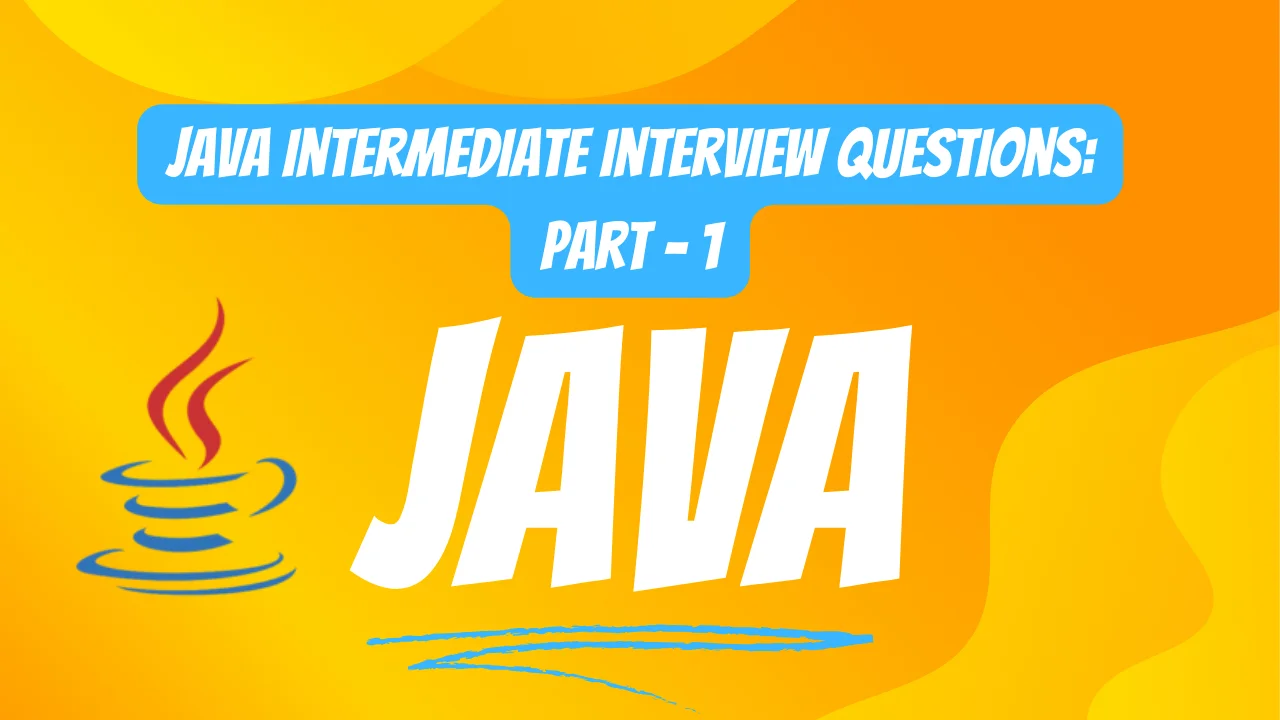Java Intermediate Interview Questions: Part - 1

1. What reasons, beyond security concerns, contribute to the design choice of immutability for strings in Java?
Immutability in strings offers several advantages beyond security concerns. It enhances thread safety, simplifies concurrent programming, and enables string caching, optimizing memory usage. Additionally, immutability aids in the creation of reliable APIs and facilitates better performance optimizations by allowing string pooling.
2. What is a singleton class in Java? And How to implement a singleton class?
A singleton class ensures that only one instance of the class exists in the Java Virtual Machine. To implement it, you typically make the constructor private, provide a static method that returns the sole instance of the class, and manage a private static variable that holds this instance. It restricts the instantiation of the class to one object.
3. Which of the below generates a compile-time error? State the reason.
Without the actual code options, it’s difficult to pinpoint. However, a common reason for compile-time errors involves mismatched data types in assignments or method calls, undefined variables or methods, or syntax errors like missing semicolons or brackets.
4. How do you distinguish between String, StringBuffer, and StringBuilder in Java?
Strings are immutable, meaning their values cannot be changed after creation. StringBuffer and StringBuilder are mutable, allowing modification of their content. StringBuffer is thread-safe due to its synchronized methods, while StringBuilder isn’t, making StringBuilder faster in single-threaded scenarios.
5. Highlight the differences between interfaces and abstract classes using their relevant properties.
Abstract classes can have both abstract and concrete methods, while interfaces contain only abstract methods by default. Interfaces support multiple inheritances, whereas a class can extend only one abstract class. Abstract classes are capable of having constructors, unlike interfaces.
6. Does this program produce a compile-time error? If so, state the number of errors and the reason. If not, explain why.
To identify errors, I’ll need to see the code. Common reasons for compile-time errors involve syntax issues, type mismatches, missing imports, or undefined variables or methods.
7. What is a Comparator in Java?
A Comparator in Java is an interface used to define a custom ordering for objects. It’s commonly used to sort collections of objects that do not have a natural ordering or to sort them in a different way than their natural order.
8. In Java, is it possible to override static and private methods?
No, it’s not possible to override static methods in Java; instead, they’re hidden in subclasses. Private methods also cannot be overridden, as they are not accessible outside the class they are defined in.
9. What makes a HashSet different from a TreeSet?
HashSet is an unordered collection that uses hashing to store elements, allowing constant-time basic operations. TreeSet is a sorted collection that maintains elements in a sorted order defined either by their natural ordering or a custom comparator, which affects its performance for insertion, deletion, and retrieval.
10. What makes a character array preferable over a string for storing confidential information?
Character arrays can be explicitly cleared after use, erasing sensitive information from memory, unlike strings, which are immutable and can remain in memory longer, posing a security risk.
In conclusion,
mastering Java is a crucial step for freshers looking to excel in the competitive IT landscape. Our compilation of Java interview questions for freshers is designed to be a comprehensive guide, helping you prepare with confidence. Whether you’re just starting your career or aiming for new opportunities, a solid understanding of Java is a valuable asset.
Ready to take your Java skills to the next level? Explore our top-notch Java Training in Chennai. Our expert instructors and hands-on approach ensure that you not only ace interviews but also thrive in real-world scenarios. To kickstart your journey to Java excellence, contact us at +91 9159-333-334 . Secure your future today with the best Java Training in Chennai. Don’t miss out on the chance to propel your career forward!
Java Intermediate Interview Questions: Part – 2





